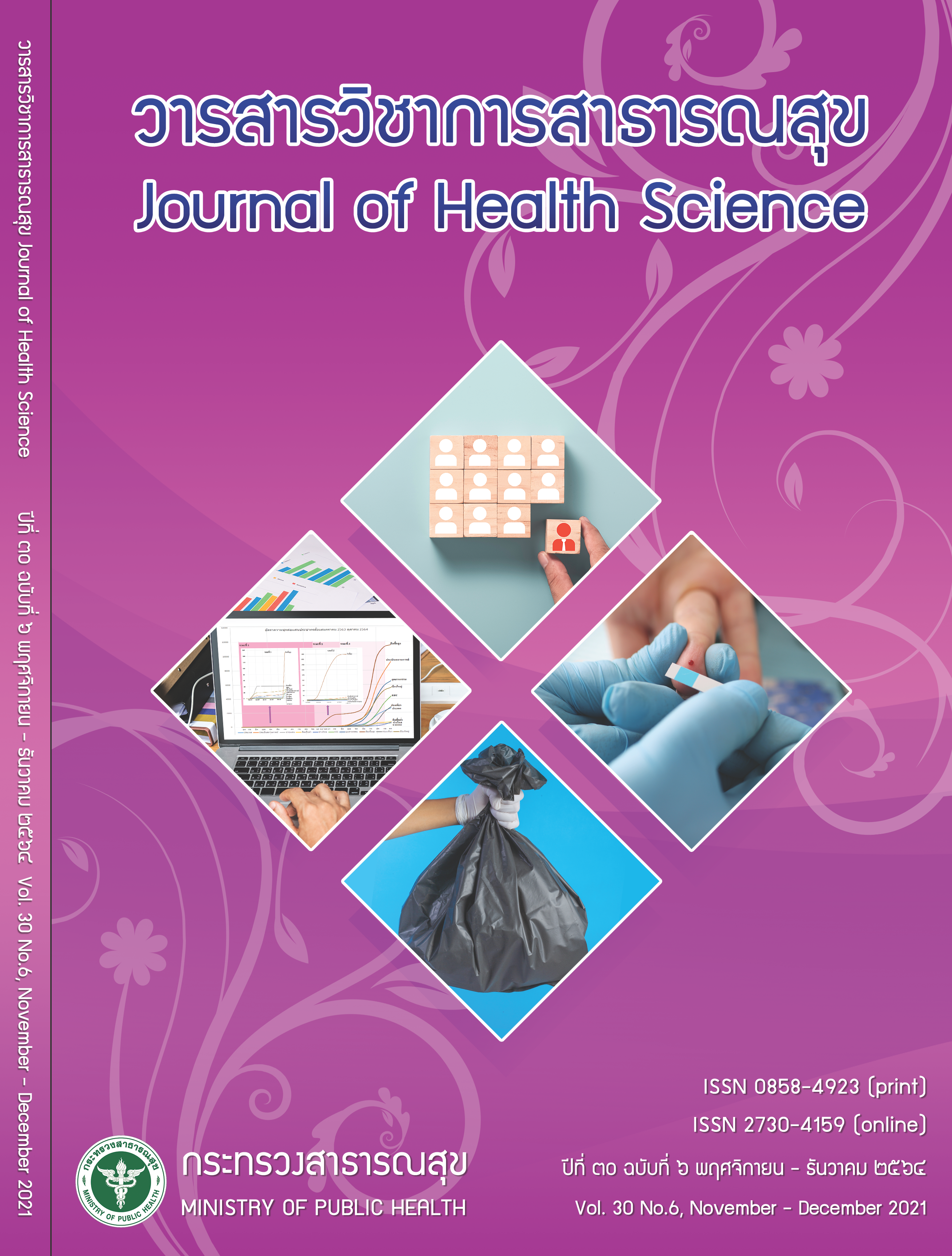Public Health Emergency Situation Management and National Policy Recommendation for COVID-19 Pandemic Attributed from 8-Context Specific in Thailand
Keywords:
lesson learnt, public health emergency situation management, COVID-19, self- assessmentAbstract
The objectives of this study were to analyse the process, model, key success factors and identify rooms for improvement of public health emergency situation management of COVID-19 pandemic in Thailandม and to evaluate completeness of public health emergency situation management, as well as to develop natural pandemic predicting model for comparing effectiveness of both national and 8 specific geographic areas. It was conducted from October 2020 to September 2021. Quantitative data were collected by using self-administered questionnaire translated from World Health Organization’s toolkit for assessing health-system capacity for crisis management. Purposive sampling method was adopted to recruit 63 participants from administrative leaders and related actors in COVID-19 prevention and control process at provincial level. Qualitative data were collected by in-depth interviews with the 63 participants from provincial administrative leaders and all related actors; 80 participants from district level; and 64 selected community health volunteers. Quantitative data were analyzed by descriptive statistics including average and percentage; and qualitative data were analyzed by content analysis to draw conclusion. The results showed that a significant driving mechanism was the Provincial Communicable Disease Control Committee. Key success factor of this processing model was the integration of work among government, private, civil society, and public sectors who participated and co-operated altogether according to their roles and responsibilities; with their maximum abilities under the single command system. The sole highest commander was at the national level who directed and synchronized each stakeholder’s work to efficiently accomplish the expected prevention and control goals. In general, average score of process implementation categorized into 7 main components: (1) leadership, management, and good governance; (2) health workforce; (3) medicines, supplies, and health technology; (4) health information system; (5) health financial system; (6) health service system; and (7) community participation, were completed in accordance with the WHO’s toolkit. The comparison among 8 specific contexual areas showed that every area had less severity than the predicted trends of the 3 pandemic phases in Thailand, except the high infection area. This could imply the effectiveness of communicable disease prevention and control process in the country. Currently the high infection areas still had more severity than the predictd level. However, there was a sign of downward trend in the pandemic. The policy recommendations were to improve the following: (1) risk management skills and competency development among policy makers and emergency situation responding managers, (2) health workforce management and development, (3) preparation and improvement of domestic vaccine production, (4) health information system, (5) communication system, (6) illegal immigration control, and (7) public-private mixed sustainable participatory service system development.
Downloads
Downloads
Published
How to Cite
Issue
Section
License

This work is licensed under a Creative Commons Attribution-NonCommercial-NoDerivatives 4.0 International License.







